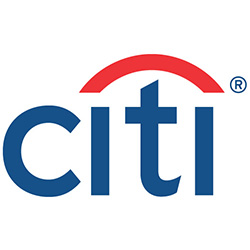Investment Strategies
Citi Private Bank Trumpets Growth, Outlines How Income-Hungry Clients Are Fed

The private bank set out its recent business performance in the EMEA market, while also spelling out some of its asset allocation and thematic ideas for coping in a world of very low bond yields.
Citi Private Bank’s Europe, Middle East and Africa business
clocked up double-digit client growth rates in 2019, not quite as
fast as the 8 to 10 per cent expansion pace over the preceding 10
years but still robust in sometimes uneven market conditions, a
senior executive said.
This year, the organisation has started its Luxembourg operation
– a booking centre – adding to its locations ranging from Dubai
and Tel Aviv through to Zurich and Dublin, Luigi Pigorini, EMEA
head, Citi
Private Bank, told journalists yesterday. He spoke alongside
colleagues at the firm’s offices in Canary Wharf, London.
“We have had a good year of growth,” he said, noting that the
pace accelerated after a slow start in the first quarter,
becoming faster into Q2, Q3 and Q4. “It has been a good year for
revenues in the EMEA private bank and record assets under
management,” he continued. “We have 1,200 people working at the
private bank in EMEA, and that number has been steadily growing,”
Pigorini said, adding that the firm developed private banking
talent in-house, or from within the Citi cluster of businesses,
as well as hiring in the external market.
“Our attrition rate is very low…..in the low single digits in
this region,” he said.
In January Citi said its private bank Q4 2019 revenues were $847
million, a 6 per cent year-on-year rise. The gain was driven by
higher lending and investment activity, with both new and
existing clients, partially offset by spread compression.
Realigning portfolios
Besides reflecting on its own business situation, senior
investment figures at the bank spoke about how they are advising
clients to tilt their portfolios for a world of protracted
very low yields on fixed income. The underlying economic
environment, notwithstanding near-term shocks such as the Chinese
coronavirus outbreak, is still strong, Steven Wieting, global
chief investment strategist at the private bank, said.
“We believe there is an underlying healthy world economy…..what
we do see is some policy risk,” he said, referring to changing
policies on interest rates and the US stance on tariffs and trade
versus China and other jurisdictions, for example.
“A major relief for a business sector that has been bracing for a
downturn was that demand has been growing,” Wieting said.
An issue for clients is that those who seek income are being left
hungry by bond markets in which yields have been crushed by
ultra-low or even negative interest rates, he said. As of 1
December 2012, about $12 trillion of debt securities traded at a
negative yield. In other words, investors are paying borrowers
for the privilege of lending a huge sum of money, about 10 times
the size of the official gold market.
With bond markets globally producing yields of just 1.6 per cent
(falling to 0.6 per cent when US bonds are taken out), it means
yield-hungry investors should consider types of equities instead,
Wieting said. The private bank 2020 Outlook report refers to
“realigning income portfolios”, suggesting that investors seeking
income who currently have all their assets in bonds should shift
some of that money into the equity market.
Equity dividend yields are above those of bond markets in every
case outside of emerging markets, he said.
Citi Private Bank’s report notes, for example, state that the
dividend yield on US equities, as measured by the MSCI North
America index, is 1.92 per cent, a touch above the 10-year US
Treasury bond yields of 1.75 per cent (figure as of late
2019).
In such a scenario, where bond yields are so low, income-pursuing
investors should examine dividend-paying, high-quality companies
in a diverse portfolio as an alternative, he said.
Wieting also mentioned themes which the bank likes:
cybersecurity, energy and fintech. In the cybersecurity case, the
rising level of hacking attacks and breaches was stimulating
investment in tools and services to fight the threat. As for
energy, data now shows that fossil fuels are in retreat, not
simply because of official policy on the environment but because
energy from certain renewables such as solar is cheaper than from
carbon. Fintech was a growth story, particularly as consumers in
emerging markets required more channels to access financial
services.